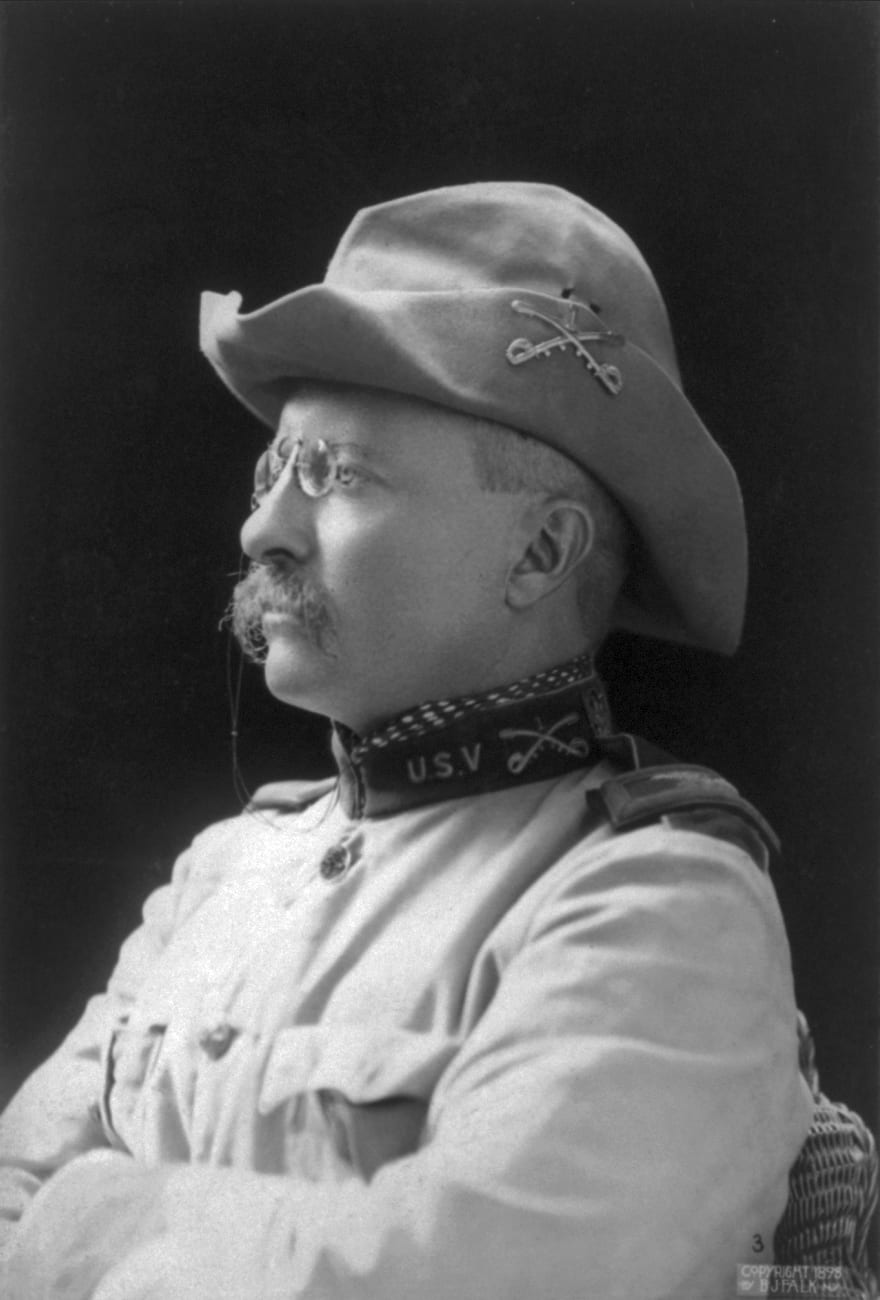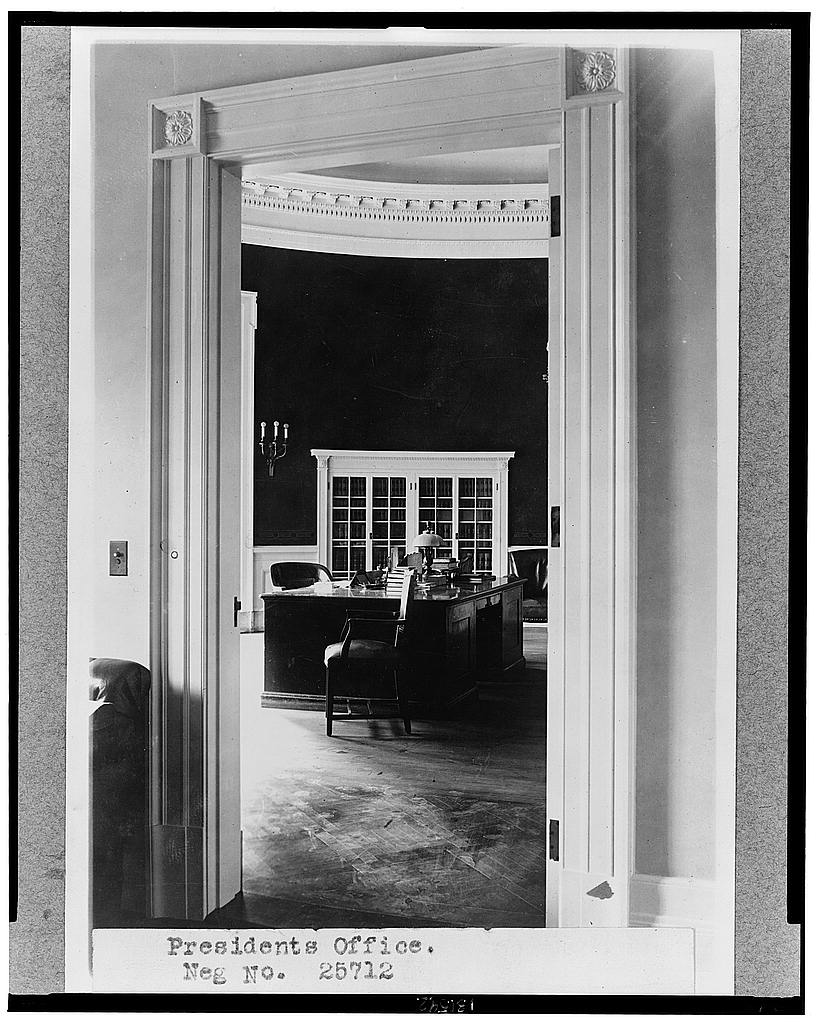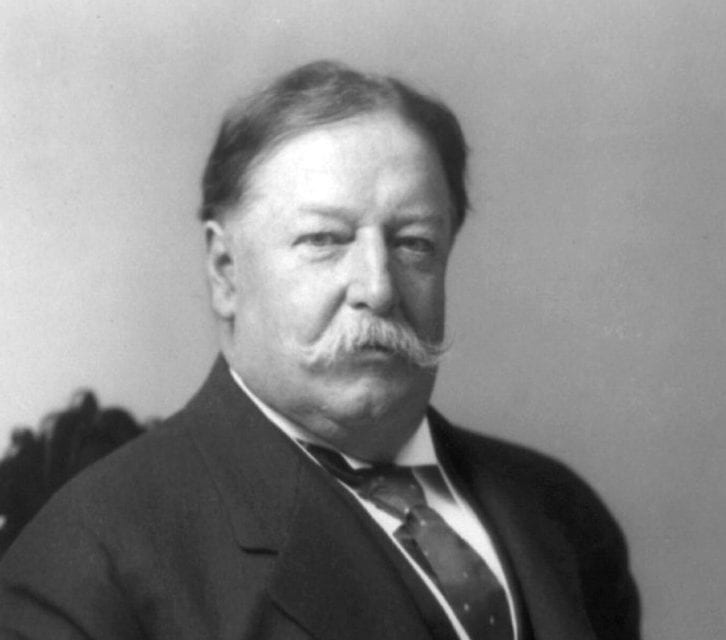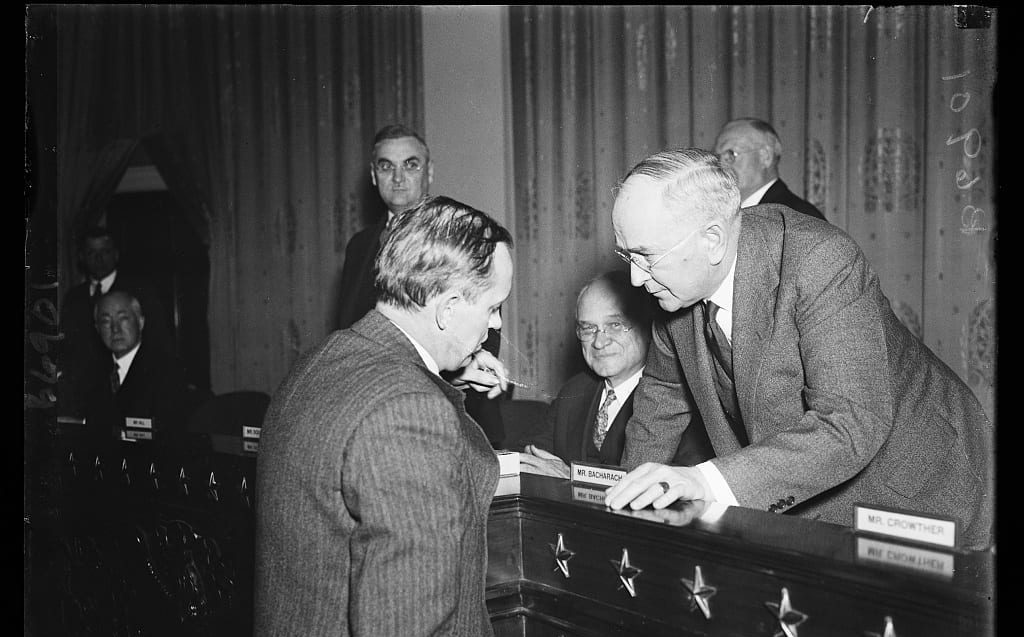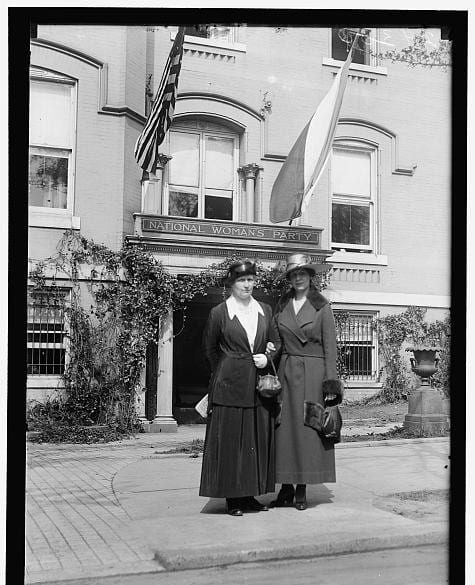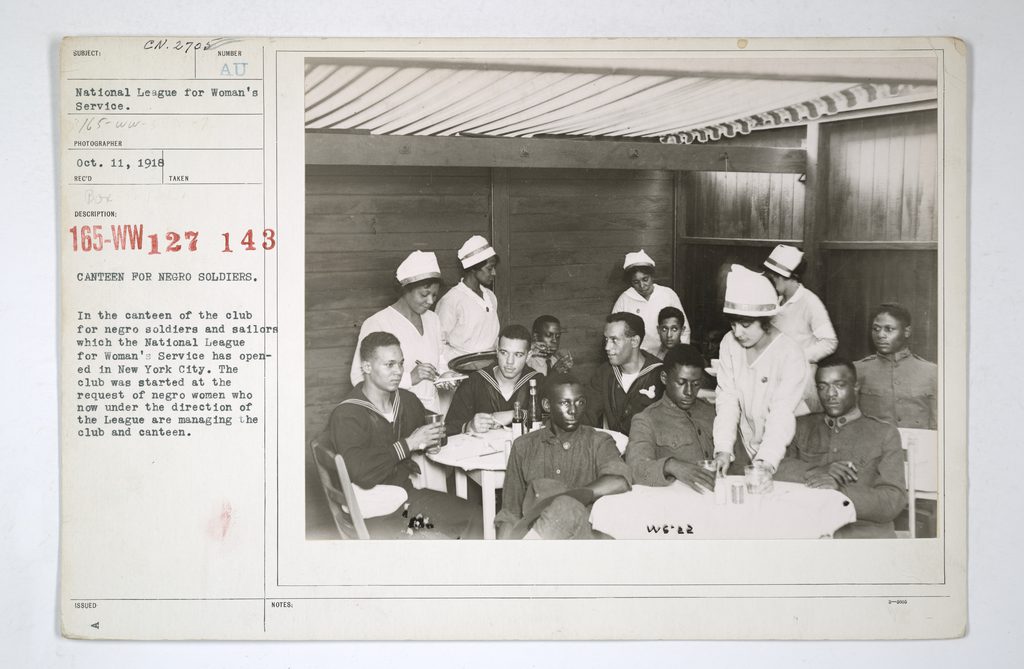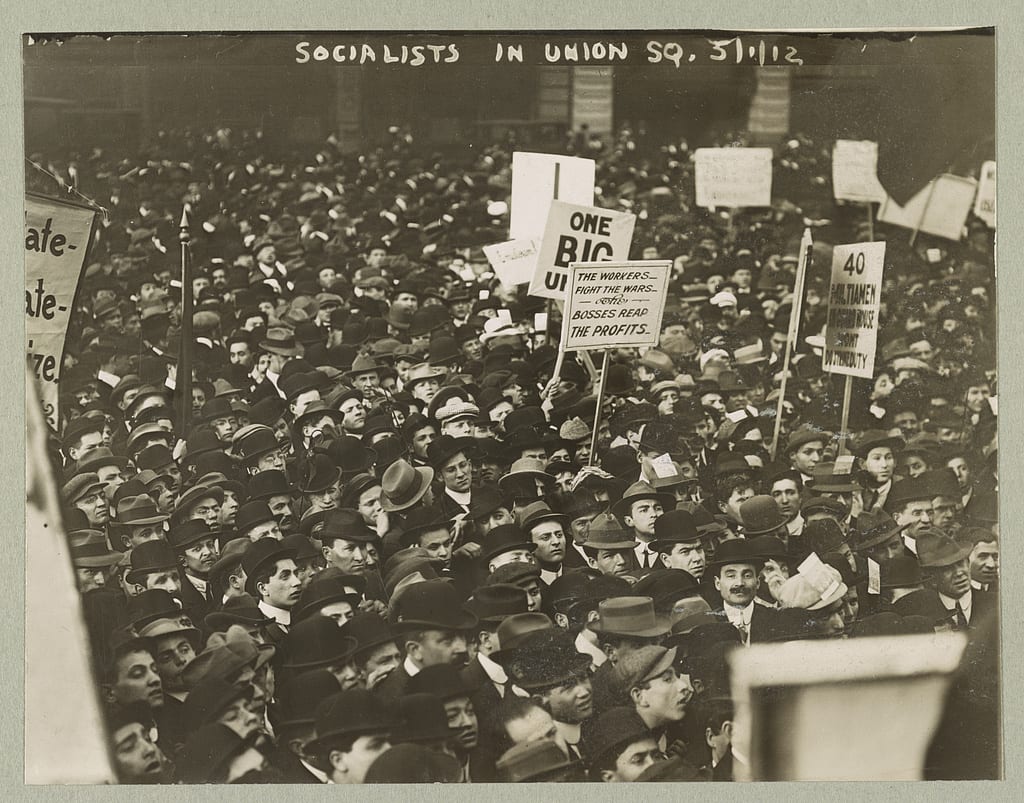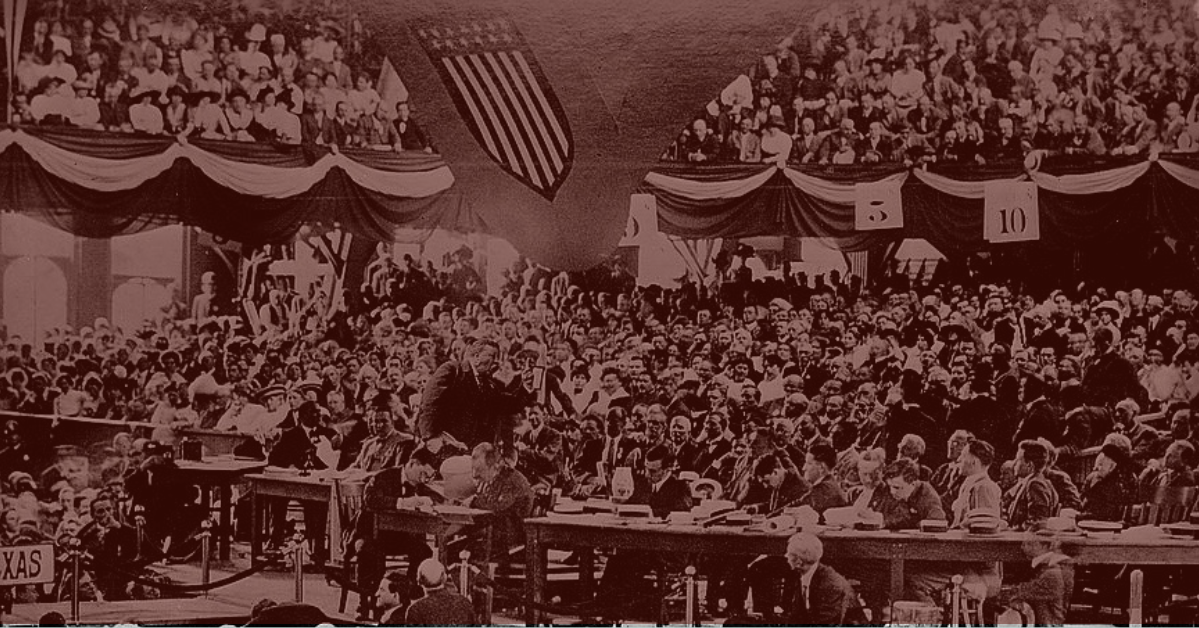
No study questions
No related resources
Introduction
Two more controversial U-boat attacks followed the torpedoing of the Lusitania (Document 3). On August 19, 1919, a German U-boat sank the SS Arabic, a British passenger ship, off the coast of Ireland just a few miles from where the Lusitania was attacked, killing forty-four people (including two Americans). Two weeks later, the German government issued the Arabic Pledge, promising to give civilians thirty minutes to evacuate passenger ships. A U-boat broke this promise on March 24, 1916, when it torpedoed the SS Sussex, a ferry carrying passengers across the English Channel, which the German crew mistook for an armed vessel laying mines. The Sussex attack killed more than fifty people and wounded hundreds, including several Americans. Deciding to take a firm stand, President Wilson (1856–1924) denounced Germany in this address to Congress on April 19, 1916.
To avoid a formal break in diplomatic relations, the German government subsequently issued the Sussex Pledge on May 4, 1916, promising to safeguard noncombatants by ending all attacks on passenger ships and giving merchant ship crews time to evacuate. This restraint paid off for Germany. Over the next eight months, the German navy sank two million tons of Allied shipping without further antagonizing the United States.
Source: Woodrow Wilson, Address to a Joint Session of Congress on German Violations of International Law, April 19, 1916 (Government Printing Office, 1919). Available at https:// babel.hathitrust.org/cgi/pt?id=uiug.30112063575986;view=1up;seq=4.
Gentlemen of the Congress:
A situation has arisen in the foreign relations of the country of which it is my plain duty to inform you very frankly.
It will be recalled that in February 1915, the Imperial German Government announced its intention to treat the waters surrounding Great Britain and Ireland as embraced within the seat of war and to destroy all merchant ships owned by its enemies that might be found within any part of that portion of the high seas, and that it warned all vessels, of neutral as well as of belligerent ownership, to keep out of the waters it had thus proscribed or else enter them at their peril. The Government of the United States earnestly protested. It took the position that such a policy could not be pursued without the practical certainty of gross and palpable violations of the law of nations, particularly if submarine craft were to be employed as its instruments, inasmuch as the rules prescribed by that law, rules founded upon principles of humanity and established for the protection of the lives of noncombatants at sea, could not in the nature of the case be observed by such vessels.1 It based its protest on the ground that persons of neutral nationality and vessels of neutral ownership would be exposed to extreme and intolerable risks, and that no right to close any part of the high seas against their use or to expose them to such risks could lawfully be asserted by any belligerent government. The law of nations in these matters, upon which the Government of the United States based its protest, is not of recent origin or founded upon merely arbitrary principles set up by convention. It is based, on the contrary, upon manifest and imperative principles of humanity and has long been established with the approval and by the express assent of all civilized nations.
Notwithstanding the earnest protest of our Government, the Imperial German Government at once proceeded to carry out the policy it had announced. It expressed the hope that the dangers involved, at any rate the dangers to neutral vessels, would be reduced to a minimum by the instructions which it had issued to its submarine commanders, and assured the Government of the United States that it would take every possible precaution both to respect the rights of neutrals and to safeguard the lives of noncombatants.
What has actually happened in the year which has since elapsed has shown that those hopes were not justified, those assurances insusceptible of being fulfilled. . . . Vessels of neutral ownership, even vessels of neutral ownership bound from neutral port to neutral port, have been destroyed along with vessels of belligerent ownership in constantly increasing numbers. Sometimes the merchantman attacked has been warned and summoned to surrender before being fired on or torpedoed; sometimes passengers or crews have been vouchsafed the poor security of being allowed to take to the ship’s boats before she was sent to the bottom. But again and again no warning has been given, no escape even to the ship’s boats allowed to those on board. What this Government foresaw must happen has happened.2
Great liners like the Lusitania and the Arabic and mere ferryboats like the Sussex have been attacked without a moment’s warning, sometimes before they had even become aware that they were in the presence of an armed vessel of the enemy, and the lives of noncombatants, passengers and crew, have been sacrificed wholesale, in a manner which the Government of the United States cannot but regard as wanton and without the slightest color of justification. No limit of any kind has in fact been set to the indiscriminate pursuit and destruction of merchantmen of all kinds and nationalities within the waters, constantly extending in area, where these operations have been carried on; and the roll of Americans who have lost their lives on ships thus attacked and destroyed has grown month by month until the ominous toll has mounted into the hundreds.
One of the latest and most shocking instances of this method of warfare was that of the destruction of the French cross-Channel steamer Sussex. It must stand forth, as the sinking of the steamer Lusitania did, as so singularly tragical and unjustifiable as to constitute a truly terrible example of the inhumanity of submarine warfare as the commanders of German vessels have for the past twelvemonth been conducting it….
The Government of the United States has been very patient. At every stage of this distressing experience of tragedy after tragedy in which its own citizens were involved it has sought to be restrained from any extreme course of action or of protest by a thoughtful consideration of the extraordinary circumstances of this unprecedented war, and actuated in all that it said or did by the sentiments of genuine friendship which the people of the United States have always entertained and continue to entertain towards the German nation. It has of course accepted the successive explanations and assurances of the Imperial German Government as given in entire sincerity and good faith, and has hoped, even against hope, that it would prove to be possible for the German Government so to order and control the acts of its naval commanders as to square its policy with the principles of humanity as embodied in the law of nations. It has been willing to wait until the significance of the facts became absolutely unmistakable and susceptible of but one interpretation.
That point has now unhappily been reached. The facts are susceptible of but one interpretation. The Imperial German Government has been unable to put any limits or restraints upon its warfare against either freight or passenger ships. It has therefore become painfully evident that the position which this Government took at the very outset is inevitable, namely, that the use of submarines for the destruction of an enemy’s commerce is of necessity, because of the very character of the vessels employed and the very methods of attack which their employment of course involves, incompatible with the principles of humanity, the long established and incontrovertible rights of neutrals, and the sacred immunities of noncombatants.
I have deemed it my duty, therefore, to say to the Imperial German Government that if it is still its purpose to prosecute relentless and indiscriminate warfare against vessels of commerce by the use of submarines, notwithstanding the now demonstrated impossibility of conducting that warfare in accordance with what the Government of the United States must consider the sacred and indisputable rules of international law and the universally recognized dictates of humanity, the Government of the United States is at last forced to the conclusion that there is but one course it can pursue; and that unless the Imperial German Government should now immediately declare and effect an abandonment of its present methods of warfare against passenger and freight carrying vessels this Government can have no choice but to sever diplomatic relations with the Government of the German Empire altogether….
- 1. Wilson was referring to the 1909 “London Declaration concerning the Laws of Naval War,” a statement of internationally accepted practices signed by the United States, Germany, Britain, and seven other nations. Wilson contended that the declaration established international laws on blockades, search and seizure, the protection of noncombatants, and the rights of neutrals. Britain and Germany ignored many of its provisions while fighting their naval war in World War I.
- 2. Before World War I, it had been customary for an attacking ship to give a merchant ship’s crew and passengers time to evacuate before sinking the vessel and its contraband. Because submarines depended on an element of surprise and had no room to carry extra passengers, the Germans routinely violated these rules, which were also outlined in the London Declaration of 1909.

Conversation-based seminars for collegial PD, one-day and multi-day seminars, graduate credit seminars (MA degree), online and in-person.


































































